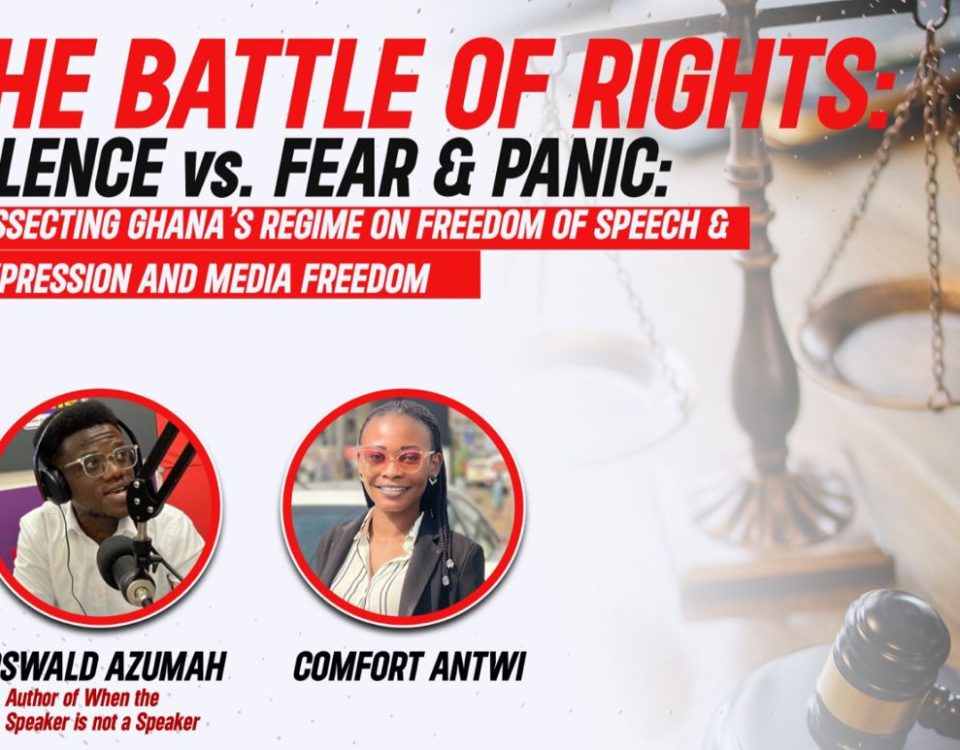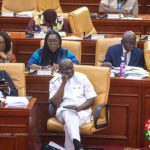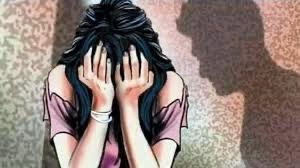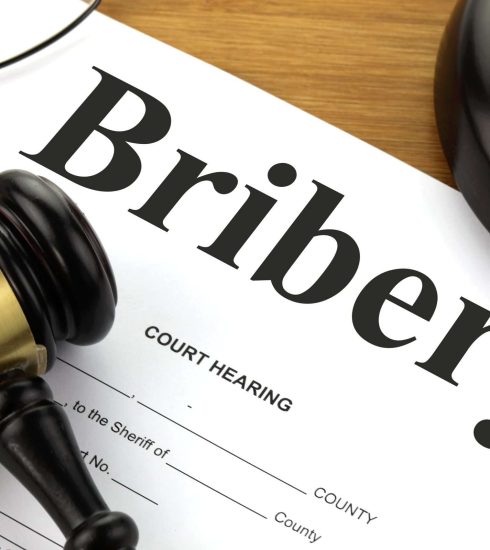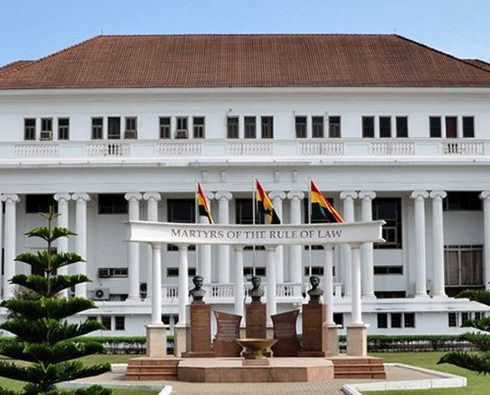The Battle of Rights: Silence Versus Fear & Panic. Dissecting Ghana’s Regime on Freedom of Speech, Expression and Media Freedom
Special Thanks
To: Fafali Alai, Ama Kyeremateng, Dominic Ohene Ofori, Charles Okyere, Frederick Agaaya, Ekow Andoh, Benjamin Alpha Aidoo and Kabu Nartey whose inputs and corrections made this possible, a big thank you to you all. God speed!
Once a government is committed to the principle of silencing the voice of opposition, it has only one way to go, and that is down the path of increasingly repressive measures, until it becomes a source of terror to all its citizens and creates a country where everyone lives in fear[1]” –
Harry Truman, 33rd President of the United States.
***
ABSTRACT
The laws regulating free speech and independence of the media in Ghana are not quite as straightforward and libertarian as one would expect of a growing democracy. Buried in the legal regime are anachronisms which a country struggling to maintain its status as one of Africa’s most successful democracies[4] can no longer ignore. In other words, political leaders should be disempowered from silencing dissenting opinions with the aid of laws which essentially torpedo true democratic values. Despite decades of efforts at achieving tolerance of divergent thoughts and expressions, Sections 207 and 208 of the Criminal Offenses Act, 1960 (Act 29)[5] have enjoyed much relevance recently. The provisions empower prosecutors to proffer criminal charges against persons who make statements with intent to cause fear and panic. These provisions, the writers herein argue, are fragments of totalitarian-like regimes—such as the Preventive Detention Act, 1958[6] (PDA) and the Criminal Libel Laws[7] which have been denounced and toppled, the last of which were expunged from our laws two decades ago; fragments which should urgently be swept away.
Background
The government of Ghana has recently faced criticisms of being anti-media friendly with some critics suggesting the repealed criminal libel laws are being reintroduced through the backdoor. The allegations follow multiple arrests, prosecutions and harassment of journalists and other critics of the regime. A few of these are presented below.
Mensah Thompson, the Executive Director for Alliance for Social Equity and Public Accountability (ASEPA) who has been very critical of the government was arrested[8] on 9th February 2022 on charges of publishing false news with intent to cause fear and alarm. He alleged some relatives of the President used the Presidential jet for unofficial purposes. He later withdrew the allegation and apologized. He was nonetheless, arrested.
Accra FM’s Bobbie Ansah was also arrested on 10th February 2022[9] for claiming that the First Lady had appropriated some state lands to herself. The prosecutors proffered charges of publication of false news with intent to cause fear and alarm.
Godsbrain Smart aka Captain Smart has been in police grips multiple times in the past couple of years with similar charges of publishing false news with intent to cause alarm. One of the claims is that the President is complicit in the illegal mining menace. Prosecutors said he impugned the name of the president[10].
Noah Dameh of Radio Ada was put on the same charges[11] for posts he made about a salt mining company in the community.
In a bizarre event, the Ghana Education Service (GES) dismissed[12] some minors from high school for insulting the president in a viral video. After a backlash, the Presidency directed the GES to reverse its decision
These are but a few instances where the state deployed its force to fight alleged abuse of free speech since 2017.
Introduction
The matter of free speech is probably the most controversial issue in a developing democracy. For thriving and widely praised democracies such as the United States of America, it is not even up for debate—the First Amendment to the US Constitution[13] makes it near-impossible for any prosecutor to level charges against a journalist or just any other exuberant citizen for their expressions, no matter how charged up their diction may be. That is why the US prides itself as the citadel of democracy, perhaps. Of course, hate speech and its likes would not be tolerated in any civilized society.
In a developing country such as Ghana, which has a strong totalitarian history[14], the case is different. In fact, multiple social media polls conducted by media houses with national coverage have turned results with respondents suggesting restrictions on the free press. Respondents suggest journalists and their reports are part of the country’s woes. Of course, little credence is given to such polls due to their tendency to be manipulated. There have been considerable approvals to the arrest and prosecution of the journalists mentioned above from sections of the public. Even the dismissal of the minors from school on accusations of insulting the president divided public opinion.[15]
The basic question to be addressed here is: are civil remedies[16] exhaustive of claims of abuse of free speech? If not, to what extent would or should the state go in interfering with free speech while pursuing a tolerant society? In this paper, attempts have been made to understand the concept and importance of free speech and its origin and evolution in Ghana. The trajectory highlights the multiple limitations on free speech through the decades, juxtaposed with other jurisdictions and the present state of affairs in Ghana. The writers also highlight the challenges with the present laws and opine on why they must change. The essay concludes with suggestions on how the defect in the law should be addressed and why this should be treated with urgency.
What we mean by free speech
Freedom of speech and expression is a democratic principle whose essence to permit minority groups to live freely in a society.[17] In contemporary societies, democracies especially, the principle has been co-opted as the friend of the journalist. This is so primarily because the journalist, and by extension the media, has become an avenue for the said minority groups to channel their views to the larger population. In the absence of a free and independent media, democracy is nonexistent. The power of minorities and critics to vociferously decry the majority opinion without being prosecuted or suffer vilification is free speech. The majority may be the government of the day and their followers. Only when free speech is fully achieved, can we hope for a thriving society. In opining on the topic, Thomas Jefferson[18] wrote:
“…the people are the only censors of their governors: and even their errors will tend to keep these to the true principles of their institution. To punish these errors too severely would be to suppress the only safeguard of the public liberty…the very first object should be to keep that right; and were it left to me to decide whether we should have a government without newspapers or newspapers without a government, I should not hesitate a moment to prefer the latter[19].” The European Court of Human Rights[20] espoused the scope of the right to express oneself in every democratic dispensation in the popular case of Handyside v. The United Kingdom[21] when it melodiously observed: “freedom of expression…is applicable not only to information or ideas that are favourably received or regarded as inoffensive or as a matter of indifference, but also to those that offend, shock or disturb the state or any sector of the population.” (Emphasis ours).
The Legal Evolution of Freedom of Speech in Ghana
Ghana’s political history with free speech is one of a roller coaster ride; a long detailed journey with which the authors decline to bore readers.[22] However, this complex journey can simply captured in four phases of legal establishments: The Preventive Detention Act 1958, The Criminal and Other Offenses Act 1960 (Act 29) which birthed the Criminal Libel Laws, the Constitution 1969 and finally, the Constitution 1992 and the attendant repeal of the criminal libel laws.
Even before Ghana came into existence in 1957, dissenters suffered arrest and prosecution for expressing views contrary to what the government propagated. None other than journalists were at the centre of these persecutions. Editors of the Evening News, Daily Mail and the Morning Telegraph suffered various forms of attack from the colonial government for publishing literature which was sympathetic to the independence struggle.[23]
Based on the above, the culture of scaring dissenters into a state of inertia was arguably inherited by the independence rulers. The Preventive Detention Act which left the indelible mark of Re Akoto and 7 others[24] is the starting point for an argument that Ghana at its birth knew not the concept of freedom of speech and expression. The infamous incarceration of the appellants in Re; Akoto[25] and their inability to obtain justice from the law courts owing largely to the jurisprudential tangent of the court lay the foundation for further narrowing of the rights on free speech.
In the Criminal Offenses Act, 1960 (Act 29), the PDA partly metamorphosed into criminal libel in Ghana. Act 29 provided in Section 183 inter alia that: 183 (2) wherever the President is of opinion
(a) that there is in any newspaper, book or document which is published periodically a systematic publication of matter calculated to prejudice public order or safety, or the maintenance of the public services or economy of the Republic, or (emphasis ours)
(b) That a person is likely to publish individual documents containing that matter,
the President may make an executive instrument requiring that a future issue of the newspaper, book, or document shall not be published, or, that a document shall not be published by, or by arrangement with, that person, unless the matter contained in the answer or the document has been passed for publication in accordance with the instrument.
Section 183A of the Act barred, inter alia, insults against the President.
It is worth pointing out that such repressive measures against the press were not unique to Ghana. Lee Kuan Yew of Singapore who had around the same time, led the small island country to independence has boasted of multiple machinations to restrict media freedom including requiring licenses for newspapers to operate and withdrawing such licenses when they became too critical.[26]
In Ghana, the change came with the advent of the Constitution 1969[27]. This overturned Parliamentary sovereignty and entrenched human rights in the constitution. (The detailed changes in media rights in the previous Constitutions, can be appreciated in Blay’s book).[28] This tradition was carried on into the third and fourth Republic which has an expanded provision for human rights where Article 21 (1) (a) and Article 162 of the Constitution 1992 further entrench Freedom and Independence of the Media which paved way for the repeal of the four-decade-old criminal libel laws. President Nana Akufo-Addo, who was Attorney General when the criminal libel laws were repealed, made a remarkable speech to Parliament while championing the expulsion of the anachronistic laws.
“It is good that the initiative that we have taken today be supported because, Mr. Speaker, that is what the nation wants. The Bill before this house is very much in accordance with the sentiments of the Ghanaian people; and those who still yearn and hanker for the return or maintenance of the status quo which allowed governments to prosecute journalists, are completely out of step with public opinion in our country today[29].”
Sections 183 and 185 were thus, expelled from the books[30]; prosecutions were discontinued[31] and journalists, and indeed all citizens and residents of Ghana could enjoy freedom of speech as thought by the framers of the Constitution 1992, or so was presumed. Indeed, the step taken by the John Kufuor administration earned the government points among the intelligentsia. But even before then, the judiciary took steps to protect and promote dissent. Shortly after the promulgation of the fourth republican constitution, the Supreme Court, per Amua-Sekyi JSC quoted the classical statement of Hall in New Patriotic Party v. Ghana Broadcasting Corporation[32] in his bid to highlight the need to accommodate dissent. “The democratic tradition that divergent views and dissenting opinions be given free expression may be summed up in the words…“I disapprove of what you say, but I will defend to the death your right to say it”[33]. The foregoing paragraphs highlight the development of the legal regime which on free speech in Ghana up until 2001, an establishment which remains till today, February 2023.
The ghost of the libel laws lingers
In his charismatic speech to Parliament in 2001[34], denouncing any law which permits prosecution of journalists, Nana Akufo-Addo essentially ruled out using the state apparatus to fight alleged abuse of free speech in lieu of the more appropriate civil process[35]. How then did the ghosts of the criminal libel laws resurface to haunt journalists under his presidency[36]? Did the lawmakers deliberately leave out Sections 207 and 208 of Act 29 while repealing the others or was it an oversight? These are hypotheticals which the authors decline to engage in. Be that as it may, the protégés of the repealed libel and seditious laws have awoken to avenge the death of their ancestors, the Preventive Detention Act and the Criminal Libel Laws in Sections 183 and 185.
The operative query here is, can Ghana pursue true democratization with these laws lurking in its books or must legislators revisit their notes from 20 years ago; or journalists and indeed, everyone else should probably just be circumspect in their publications and utterances? It is the opinion of the writers that law is categorized not only for academic ease but for instances such as this. State power should not be deployed where individuals should pursue their own civil claims in court. This country has experienced a crackdown on dissent in multiple ways and the authors opine that with the state seeking to try journalists for allegations which can only qualify as defamation, it won’t not belong before the country’s history and recent gains would be soiled with another Re: Akoto[37].
What exactly do Sections 207 and 208 say?
207 – Offensive conduct conducive to breaches of the peace
A person who in a public place or at a public meeting uses threatening, abusive or insulting words or behaviour with intent to provoke a breach of the peace or by which a breach of the peace is likely to be occasioned, commits a misdemeanour.
208 – Publication of false news
(1) A person who publishes or reproduces a statement, rumour or report which is likely to cause fear and alarm to the public or to disturb the public peace knowing or having reason to believe that the statement, rumour or report is false commits a misdemeanour. (Emphasis ours).
(2) It is not a defence to a charge under subsection (1) that the person charged did not know or did not have reason to believe that the statement, rumour or report was false, unless it is proved that, prior to the publication, that person took reasonable measures to verify the accuracy of the statement, rumour or report.
How different are the essence of these provisions from the repealed laws? Nkrumah justified the Preventive Detention Act as an attempt to preserve public order amidst growing violence among dissenters. The criminal libel and seditious laws prided themselves with the onus of preventing publications which were “calculated to prejudice public order or safety.” This did not save them from being repealed. Their expulsion indeed is in line with the best international practice and objectives of international law.[38]
How then do we repeal the libel and seditious laws from our criminal law and permit the proffering of charges for allegations that the president and his family used the presidential jet for recreational purposes? The ludicrousness of the charges could not be over stated neither could the overbreadth of the provisions which allow the charges to be levelled. In his attempt to define the scope of the Section 208 in Adusei II v. The Republic[39] Osei-Hwere, J stated that “we may do well to remind ourselves…that section 208 comes under the head, “Offences against the Peace,” and takes its place among sections relating to offences against the public peace and tranquility. The judge overturned the conviction of the appellant for alleged publication of false news with intent to cause alarm.[40]
The Doctrine of Overbreadth
The doctrine of overbreadth also found its traces in the decision of the court in the Adusei II case. The doctrine of overbreadth, arises when a criminal statute is unconstitutionally overbroad.[41] This may cause prosecutors to charge and arraign alleged defaulters for actions or omissions not originally contemplated by the crime creating provision of the statute or that the provision itself is vague, giving room for unrestrained discretion. In this context, the doctrine concerns itself with laws which are calculated to restrict free speech and expression[42]. It decries attempts by governments to rely on these laws, most of which vague and gives prosecutors a wide range of discretion to arrest and arraign critics of the government for taking on the said government and its key figures. Justice Osei-Hwere narrowed the overbreadth effect of Section 208 of Act 29 in his explanation of the provisions, arguing that: the test whether the offence is committed is not the actual result, but whether the false statement was likely to cause a breach of the peace. This, position gives prosecutors the charge of proving that their accused actually intended to disturb the peace instead of relying on the reception that greeted the accused expressions. The lingering of Sections 207 and 208 of Act 29 in our laws have however, enabled the arrest and prosecution of journalists and dissidents since the repeal of 183 and 185.
The United States Supreme Court in Papachristou v. City of Jacksonville gave more credence to the doctrine of overbreadth when it set aside the conviction of the appellants. Justice Douglas, in delivering the decision of the SCOTUS[43] stressed that the vagrancy ordinance under which the appellants were arraigned was unconstitutionally void for vagueness for two reasons. Firstly, that it failed to provide adequate notice to individuals about what conduct was forbidden by the law and secondly that, it encouraged arbitrary arrests and convictions. How different is the situation of Papachristou et al. from journalists and critics who are being arrested and arraigned under the vague and overreaching provisions of the twin sections of 207 and 208? In the opinion of the writers, there is none; these provisions and its recent deployment, dramatically exposes the real dangers and capacity for mischief-trials embedded in vague and overly broad statutes.
Where do we go from here?
The way forward lies in revisiting the very document that binds us together as a people and which mirrors our future.[44] The provisions on freedom of speech and expression are well-known in the constitution. Where to focus on are the ideas which underpinned these provisions which can be found in the report of the Committee of Experts for the Constitution 1992.[45]
The Committee based its championing of a free, vibrant and independent media on the libertarian arguments of John Stuart Mill[46] who advocated the freedom and liberty as against a strong state. In his essays on the free press, Mill argued
“if all mankind minus one were of one opinion, and only one person were of the contrary opinion, mankind would be no more justified in silencing that one person, than he, if he had the power, would be justified in silencing mankind.”[47]
The committee of experts quote J.S. Mill with approval while they made the case for freedom of the press. And indeed J.S. Mill shared the idea of the writers herein that without the free press, democracy would be nonexistent. As Mill puts it: in the modern world, freedom of thought and expression including freedom of the press; the rule of law and the independence of the judiciary; and fair and free elections are considered to be three pillars on which the edifice of democracy stands.
All these three pillars are interdependent and inter-connected. Destruction of them can undermine the whole structure of democracy and lead to its collapse. Indeed, any successful attack human rights by governments often starts with a suppression of freedom of the press. Once this is achieved, governments are free to abuse basic human rights with impunity and without any publicity, Mill observes.
As Dotse, JSC (as he then was) observes in Ghana Independent Broadcasters Association (GIBA) v. The Attorney General and National Media Commission[48]: there is also no doubt that the history of this country during the first Republic was also not lost on our forebears in the provisions to ensure and guarantee free speech. I believe that, it is that sordid history that guided the Consultative Assembly to include provisions in article 162, clauses 1 to 5 on Freedom and Independence of the media as one of the few provisions of the Constitution 1992 that are considered and labeled as entrenched provisions.
This belief enabled the repeal of Sections 183 and 185 and for which no logical or legally justified reason exists for the continuous stay of Sections 207 and 208 of the Criminal Offenses Act in our statute books. Indeed, the Constitution’s preamble underscores the desire of Ghanaians to hold their leaders accountable by affirming the commitment to: Freedom, Justice Probity and Accountability—and as already discussed in detail, these principles can only exist in a society which does not proffer criminal charges for critical journalism and fierce dissent.
Citizens must boldly confront actions of their leaders without fear of being whisked away on a vague appreciation of what constitutes fake or false news with an intent to cause fear and alarm. The easiest route to cure this overbreadth and allow journalists and critics enjoy their constitutional right is to repeal the provisions under review. But in order to protect the sanctity of the populace against unwarranted fear and panic lawmakers should properly define what conduct constitutes the offense rather than the status quo which targets journalists and regime critics. In lieu of that we are burdening the courts with applying the so-called reasonable man’s test[49], among others.
Winding up
It is long settled that human rights are not absolute and that one’s right end where another’s begin. The repeal of the libel laws and indeed these writers do not champion a license to irresponsible speech and unpunished defamatory statements. This, notwithstanding, the art of deploying the state to enforce civil violations and crack down of boisterous dissent in the name of preserving public order is demonstrably an overused excuse for totalitarian regimes and this has no place in a country striving to achieve complete democratization.
Resources are replete with which aggrieved persons can seek redress against alleged acts of defamation without involving the state’s prosecutorial apparatus; the courts and the Media Commission being only some of these. Recent sanctions from social media giants and strengthening of their community guidelines have also underscored steps being taken to ensure civility in activism, which means the state needn’t be obsessed with enforcing community standards with its justice department/ministry. Besides, the Constitution itself foresaw instances of abuse of the freedom of expression and media and thus, established in Article 166, a Media Commission with its functions being, among others, to ensure high journalistic standards. More so, Article 164 of the Constitution also paves way for enacting laws which may limit the extent of free speech in the interest of public order and the right of others[50]. These provisions of the Constitution can be exploited in a manner which would not fall victim to the overbreadth effect, thereby, limiting the tentacles of critical journalism and dissent which the Constitution 1992 envisaged.
Conclusion
To paraphrase Frederick Agaaya,[51] the arguments for and apparent deployment of state machinery to enforce alleged defamatory language and vociferous dissent are not only fundamentally flawed, they are a cruel manipulation of common sense, singularly rationally inexplicable, morally scandalous and, above all, a manifest violation of the constitutionally guaranteed right to freedom of speech and expression.
We cannot continue to pretend that we want a democracy while championing ideals which are obsolete and only useful to Nazi-like regimes. Dissent remains the most effective means of building a democracy and the court in Handyside v. The United Kingdom[52] has settled it that democracies must be ready to deal with all forms of dissent including those that offend, shock or disturb the state.
The time has come where Ghanaians must rise up and tell their leaders that the two ghosts of the preventive Detention Act which continue to haunt dissenting citizens must be banished from the laws of the country. We can no longer operate a system of you may talk but do not talk.
We end with the wisdom of Dotse, JSC (as he then was) in GIBA v. The AG and National Media Commission[53] Our only security as a country lies in a free press, and any attempt to muzzle the press and return to the days of old by unconstitutional restraint on this invaluable right must not be allowed to see the light of day.
CLICK HERE TO DOWNLOAD THE PAPER
[1] Lead Author; Oswald Azumah, BA, University of Ghana, Legon [English & Political Science], LLB Candidate, University of Ghana School of Law, Author of When the Speaker is not a Speaker and Coup d’états in Africa: The politician vs. the soldier. Journalist, focusing on international and local politics, JOYNEWS (2017 to 2020)
[2] Assistant, Comfort Antwi, 3rd Year LLB, University of Ghana School of Law
[3] Harry Truman, ‘Special Message to the Congress on the Internal Security of the United States’ (1950). https://www.goodreads.com/quotes/17832-once-a-government-is-committed-to-the-principle-of-silencing .
[4] Isaac Ofosu Debrah, ‘Why Democracy Promoters Must Pay Close Attention to Ghana and Africa’s Other Growing Democracies’ (2015) WCAP 1
[5] The Criminal Offenses Act, 1960 (Act 29) is the primary document governing Ghana’s criminal regime.
[6] The Act has been decried as a draconian dent on human rights and freedoms.
[7] The Criminal Libel laws in Ghana existed in Sections 183 and 185 of Act 29. They were repealed by the Repeal of Criminal Libel and Seditious Laws (Amendment) Act, 2001 (Act 602)
[8] — ‘Ghanaians arrested for allegations they made against Akufo-Addo and his family in 2022’ <https://www.ghanaweb.com/GhanaHomePage/NewsArchive/Ghanaians-arrested-for-allegations-they-made-against-Akufo-Addo-and-his-family-in-2022-1685852> accessed 24 February 2023
[9] Ibid
[10] Ibid
[11] — ‘Yet another Ghanaian journalist arrested over false news charges’ <https://www.mfwa.org/country-highlights/yet-another-ghanaian-journalist-arrested-over-false-news-charges> accessed 24 February 2023
[12] Ernest Arhinful, ‘8 Chiana SHS students dismissed for insulting Akufo-Addo’ <https://www.myjoyonline.com/8-chiana-shs-students-dismissed-for-insulting-akufo-addo/> accessed 24 February 2023
[13] The First Amendment to the US Constitution is part of the Bill of Rights which entrench basic human freedoms in the Constitution of the USA.
[14] Ghana, until 1992 suffered the brunt of military takeovers of government, events which saw the imposition of autocracy by the military juntas which deposed the constitutionally elected governments.
[15]Kabah Atawoge, ‘Dismissed Chiana students remorseful, plead for forgiveness’ <https://citinewsroom.com/2023/01/dismissed-chiana-students-remorseful-plead-for-forgiveness/> accessed 24 February 2023
[16] Tortious processes such as Defamation and Slander Laws under the Common Law remain available to anybody claiming an attack on his reputation by another
[17] Eleanor Brooks, ‘Why Is Freedom of Speech Important in a Democracy: 5 Reasons’ <https://www.liberties.eu/en/stories/why-is-freedom-of-speech-important/44136> accessed 05 March 2023
[18] Thomas Jefferson (April 13, 1743 – July 4, 1826). 3rd President of the United States of America
[19] — ‘Jefferson Quotes and Family Letters. Extract from Thomas Jefferson to Edward Carrington’ <https://tjrs.monticello.org/letter/1289 > accessed 25February 2023
[20] The Court applies the European Convention on Human Rights. Its task is to ensure that States respect the rights and guarantees set out in the Convention. https://www.echr.coe.int/documents/questions_answers_eng.pdf
[21] Handyside v. The United Kingdom, 5493/72, Council of Europe: European Court of Human Rights, 4 November 1976, <https://www.refworld.org/cases,ECHR,3ae6b6fb8.html> accessed 24 February 2023. The European Court of Human Rights held that Handyside’s conviction constituted an interference with the right to freedom of expression which had been ‘prescribed by law’ and pursued the legitimate aim of protecting morals; at issue was whether the interference had been ‘necessary in a democratic society’.
[22] For more details of the political journey of Free speech in Ghana, refer to Kabral Blay Amihere’s I spoke for Freedom : History and Politics of the Ghana Press
[23] Kwame Nkrumah, Ghana: The Autobiography of Kwame Nkrumah (PANAF 1957) 119
[24] [1961] GLR 523
[25] Ibid
[26] Lee Kuan Yew, From Third World to First (HarperCollins Publishers 2000) 189
[27] Justice Abdulai v. Attorney-General (J1 7 of 2022). Kulendi, JSC writes in the case: In the Light of the above, the Supreme Court, under The 1957 And 1960 Constitutions could not question the laws made by parliament even when they were arbitrary laws, on grounds of parliamentary sovereignty. A classic example of the lack of limits to the law making power of Parliament under this constitutional dispensation can be found in the infamous case of Re: Akoto and 7 Others…1969 constitution introduced constitutional supremacy.
[28] Ibid
[29] Nana Akufo-Addo, Attorney General (As he then was) Speech to Parliament. Accessed https://www.youtube.com/watch?v=gbEYYSmCU3w
[30] The Criminal Code, Repeal of Criminal Libel and Seditious Laws (Amendment) Act 2001 (Act 602)
[31] Republic v. Tommy Thompson Books Ltd, Eben Quarcoo and Kofi Coomson (Unreported). The accused persons were prominent journalists who were fervent supporters of the opposition. They were charged with publishing false reports likely to injure the reputation of the State, contrary to section 185(1) of the Ghanaian Criminal Code (Act 29), 1960. They had alleged in their publication that the wife of the head of State was involved in drug smuggling. The charge sheet was dated 14 February 1966. In December 2000, the general election was won by the opposition NPP, and after assuming office the new Attorney General entered a nolle prosequi to discontinue the case.
[32] New Patriotic Party v. Ghana Broadcasting Corporation [1993-94] 2 GLR 354—393
[33] Hall, Evelyn Beatrice, ‘The Friends of Voltaire’. (1907). G. P. Putnam’s Sons. Pg. 199
[34] Ibid
[35] Ibid
[36] Ibid
[37] Ibid
[38] Universal Declaration of Human Rights (1948) Article 19. Everyone has the right to freedom of opinion and expression; this right includes freedom to hold opinions without interference and to seek, receive and impart information and ideas through any media and regardless of frontiers.
[39] Adusei II v. The Republic [1975] 2 GLR 225
[40] In the Adusei II case, the appellant wrote a letter to the Asantehene alleging that certain persons were plotting to overthrow the government. The police investigated the report and found it to be false. He was convicted of publishing false news and deceit of public officer. On appeal, it was held that the mere making of a false statement was not the crux of the offence, but its publication to the general public in such a way to cause alarm and fear [emphasis applied] and the prosecution had failed to prove that.
[41] Richard H. Fallon, Jr. ‘Making Sense of Overbreadth’ [1991] YLJ <https://openyls.law.yale.edu/bitstream/handle/20.500.13051/8597/41_100YaleLJ853_January1991_.pdf?sequence=2 >
[42] Keith H. Holland, Doctrine of Substantial Overbreadth: A Better Prescription for Strong Medicine in Missouri (2014) Missouri Law Review, Volume 79. Pg. 197. Available at: https://scholarship.law.missouri.edu/mlr/vol79/iss1/6
[43] Supreme Court of the United States
[44] Tuffuor v Attorney General (1980) G.L.R 637 per Sowah JA
[45] Committee of Experts, Report on Proposals for a Draft Constitution of Ghana [179]
[46] J.S. Mill (1806 to 1873); English Philosopher and Lawmaker
[47] John S. Mill, On Liberty: Of the Liberty of Thought and Discussion (Batoche Books Limited 1859) Ch. 2 Pg. 18
[48] (J1 4 of 2016) [2017] GHASC 45
[49] Kofi Kumado, Introduction to the Law of Torts in Ghana: Who is the reasonable man? (Black Mask Limited 2019) Pg. 148
[50] Article 164 of the Constitution, 1992: The provisions of articles 162 and 163 of this Constitution are subject to laws that are reasonably required in the interest of national security, public order, public morality and for the Purpose of protecting the reputations, rights and freedoms of other persons.
[51] BL Candidate; Ghana School of Law, LLB University of Ghana School of Law
[52] Ibid
[53] Ibid
CLICK HERE TO READ: WHEN THE SPEAKER IS NOT A SPEAKER
Source - Oswald Azumah and Comfort Antwi


